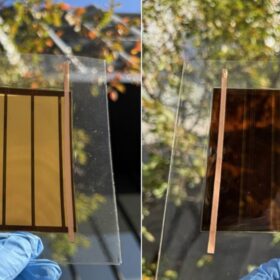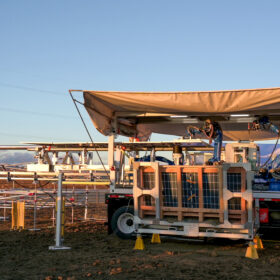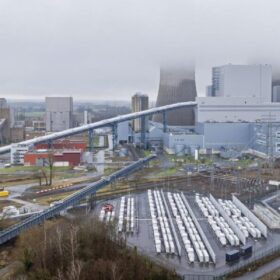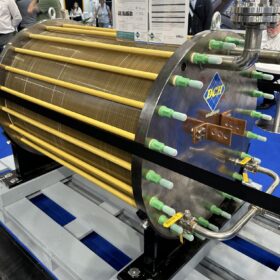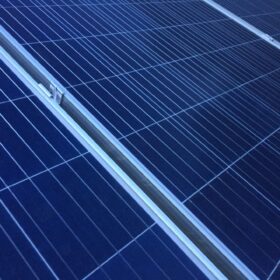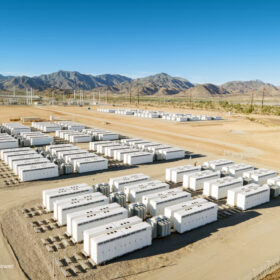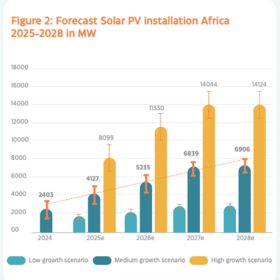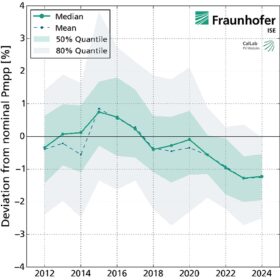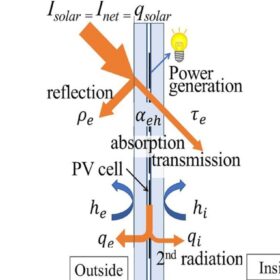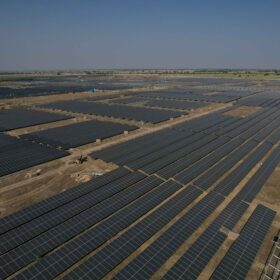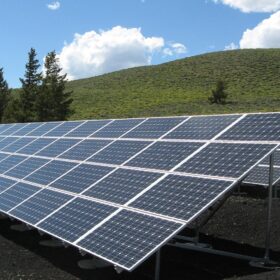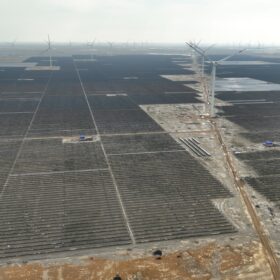Scientists unveil durable perovskite PV modules with carbon nanotube electrode
Japanese researchers have engineered a 100 cm² perovskite solar cell module featuring a robust single-walled carbon nanotube (CNT) electrode to improve durability and enable dual-sided light absorption.
MIT-based startup launches solar construction robotic system
Charge Robotics partnered with Solv Energy to pilot a portable factory system intended to make solar installations safer and more efficient for increasingly challenging terrain.
RWE plans 1.2 GWh battery on German former coal plant
The energy company says it is investing a mid-three-digit million euro amount into construction of the 600 MW battery energy storage system (BESS).
The Hydrogen Stream: TotalEnergies to buy green hydrogen from RWE
The Hydrogen Stream: TotalEnergies to buy green hydrogen from RWE
TotalEnergies says it has signed a 15-year deal with RWE to buy 30,000 tons of green hydrogen per year from a 300 MW electrolyzer in Germany, while Plug Power has announced a partnership with Southwire to create a clean hydrogen ecosystem in Texas.
Residential solar in USA declined 31% in 2024
Despite the down year, Wood Mackenzie forecasts the market to more than triple in size by 2035.
Scatec signs PPA for large-scale solar-plus-storage project in Egypt
Norway’s Scatec Asa has signed a 25-year power purchase agreement (PPA) with Egypt Aluminium for a 1.1 GW solar plant with 100 MW/200 MWh of battery energy storage. The agreement has been billed as Egypt’s first utility-scale PPA with an industrial offtaker.
How advanced battery technologies are transforming solar energy storage
The energy storage market is rapidly evolving with cutting-edge battery technologies leading the way. Ongoing advancements are improving lithium batteries’ safety and longevity, further solidifying their position as the preferred choice for solar energy storage systems. Other promising developments are solid-state batteries, flow batteries, and sodium-ion batteries.
Africa’s solar capacity forecast to double over next four years
A report from the Global Solar Council says Africa’s solar deployment is set to accelerate in the coming years, but stresses that mobilizing finance and strong regulatory frameworks will be required to attract investors.
Fraunhofer ISE research finds solar module output ‘often overstated’
A longitudinal research project from the Fraunhofer Institute for Solar Energy Systems ISE reveals that since 2017, the institute has measured less power on average in a solar module than promised by the manufacturer.
Enhancing PV glazing prospects in solar architecture
To make it easier to adopt building integrated PV (BIPV) as a glazing material, a group within the IEA Photovoltaic Power Systems Programme (IEA-PVPS) has tackled the solar heat gain coefficient (SHGC) calculation for BIPV. It is part of IEA PVPS Task 15 international standardization efforts.
